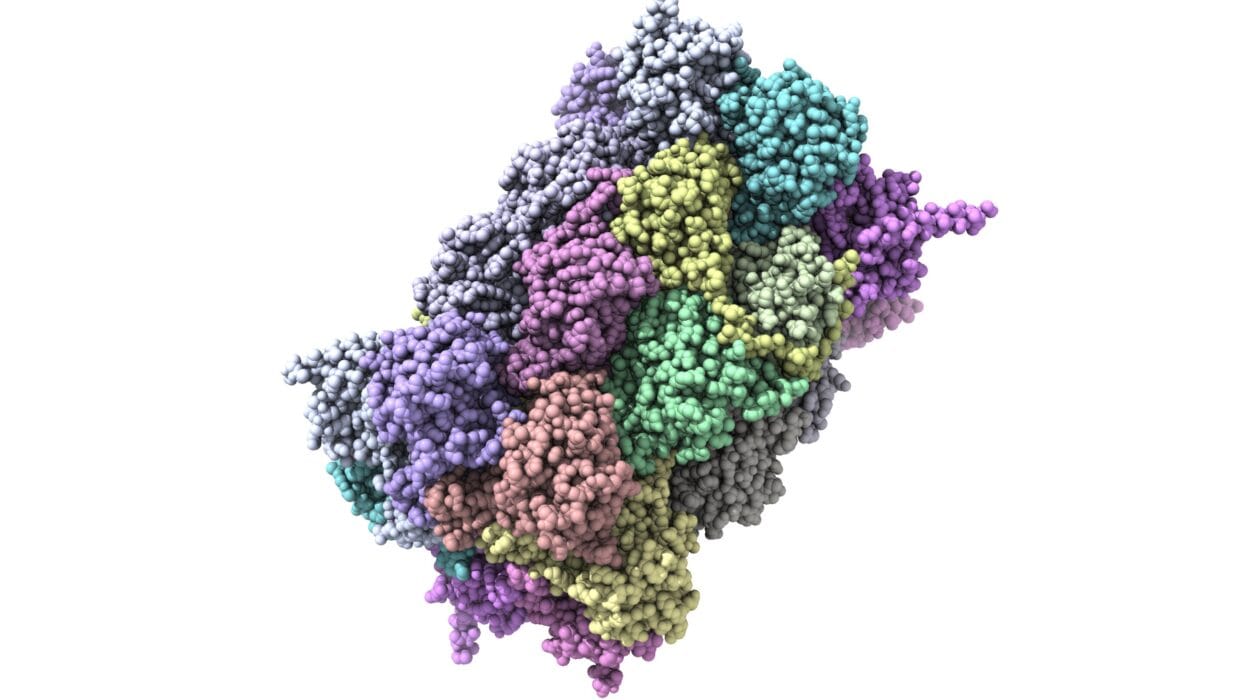Women’s health has never been a one-size-fits-all equation. From puberty to pregnancy, menopause, and beyond, a woman’s body undergoes profound biological changes, each demanding a different kind of support. While a balanced diet, regular exercise, sleep, and stress management are the foundations of good health, sometimes the modern lifestyle chips away at these ideals. Whether it’s the fast-paced demands of daily life, nutrient-depleted soil in the foods we eat, or hormonal changes that throw the body out of balance, even the healthiest among us can find themselves deficient in vital nutrients.
Supplements have emerged not as a replacement for healthy habits, but as allies in the pursuit of optimal wellness. The right supplements can help bridge nutritional gaps, balance hormones, ease menstrual symptoms, support bone health, boost immunity, sharpen cognition, and enhance energy. But navigating the supplement aisle—or the online marketplace—can feel overwhelming. With an avalanche of marketing claims, confusing labels, and contradicting advice, it’s no wonder women are left wondering: which supplements actually work, and which are just hype?
To answer that, we must go deeper than trendy labels and look at the science, the timing, and the unique biological needs that define a woman’s life.
Why Women’s Nutritional Needs Are Unique
A woman’s body is a beautiful, complex system governed by intricate hormonal cycles, ever-shifting nutrient demands, and physiological events that men simply do not experience. Menstruation, pregnancy, lactation, and menopause all introduce unique requirements for vitamins, minerals, and other bioactive compounds.
Iron demands spike during menstruation due to blood loss. Folic acid becomes crucial during childbearing years, not just during pregnancy but well before it. Calcium and vitamin D become more vital with age, particularly during perimenopause and menopause when bone density can plummet. Hormonal fluctuations impact mood, skin, weight, and energy—often leaving women wondering if something more is needed beyond leafy greens and multivitamins.
Furthermore, social and cultural roles often influence women’s health habits. Many women juggle caregiving, careers, and emotional labor, leaving little time to focus on self-care. Chronic stress, poor sleep, and skipped meals are common themes—and all of these deplete key nutrients over time.
This is why a tailored approach to supplementation—based on life stage, lifestyle, and biological rhythms—can offer meaningful support. Supplements aren’t magic pills, but when used intelligently, they can elevate health in powerful ways.
The Unsung Power of Multivitamins (and Their Pitfalls)
Multivitamins often serve as a daily nutritional insurance policy, but not all are created equal. For women, the right multivitamin does more than just check boxes—it should reflect real biological demands. A well-formulated multivitamin for women typically includes higher levels of iron, folate, vitamin D, and B-complex vitamins. These nutrients support everything from red blood cell production to brain function and hormone synthesis.
However, there’s a catch: many over-the-counter multivitamins are poorly absorbed, overloaded with fillers, or contain forms of nutrients that your body can’t efficiently use. For instance, folic acid is often added to multivitamins, but some women—especially those with an MTHFR gene mutation—struggle to convert it into its active form, methylfolate. A better choice would be a multivitamin that includes methylated forms of B vitamins and chelated minerals, which are more bioavailable.
The best multivitamins should feel like a targeted wellness tool, not just a generic blend. When tailored to your age, hormonal status, and lifestyle, a quality multivitamin can help restore balance and fill in the gaps that even a great diet might miss.
Iron: A Critical Mineral for Energy and Vitality
Iron deficiency is one of the most common nutrient deficiencies among women—especially those who menstruate heavily, are pregnant, or follow vegetarian or vegan diets. Even mild iron deficiency can cause fatigue, poor concentration, shortness of breath, and hair thinning.
Iron plays a vital role in hemoglobin production, which is responsible for carrying oxygen throughout your body. Without enough iron, your cells are literally starved of oxygen, leaving you tired and foggy.
Not all iron supplements are the same. Ferrous sulfate is the most common form but often causes constipation or nausea. Gentle forms like ferrous bisglycinate or heme iron (derived from animal sources) are easier on the stomach and better absorbed. It’s important to pair iron with vitamin C, which enhances absorption, while avoiding calcium-rich foods or coffee at the time of supplementation, since they can inhibit it.
Before reaching for an iron supplement, it’s wise to get your ferritin levels checked. Too much iron can be harmful, so supplementation should be based on actual need—not just symptoms.
Calcium and Vitamin D: Guardians of Bone Health
Every woman needs to think about her bones—especially after the age of 30, when bone density begins to decline. The process accelerates in menopause, making osteoporosis a very real risk for older women. Calcium is the mineral most associated with bone health, but it doesn’t work in isolation. Vitamin D is essential for calcium absorption and regulation within the bloodstream.
Calcium supplements come in various forms, with calcium citrate and calcium carbonate being the most common. Calcium citrate is easier to digest and can be taken on an empty stomach, making it ideal for older women or those with digestive issues. But without adequate vitamin D, even the best calcium supplement won’t make a difference.
Vitamin D deficiency is rampant, especially in colder climates or among people who spend most of their time indoors. This “sunshine vitamin” does much more than support bones—it plays a critical role in immune health, mood regulation, and even hormone balance. Supplementing with vitamin D3 (cholecalciferol) is typically more effective than D2, and many women benefit from daily doses ranging from 1000 to 4000 IU, depending on blood levels and exposure to sunlight.
For optimal bone health, it’s important to also ensure adequate intake of magnesium and vitamin K2, which help shuttle calcium into the bones and prevent it from hardening the arteries.
Omega-3 Fatty Acids for Hormones, Heart, and Mind
Omega-3 fatty acids, particularly EPA and DHA found in fish oil, are essential for female health. They reduce inflammation, support cardiovascular health, and play a profound role in brain function and mood regulation. For women, omega-3s also influence hormonal balance, helping ease PMS symptoms and perimenopausal mood swings.
These healthy fats are crucial during pregnancy and breastfeeding, contributing to fetal brain and eye development. But even beyond childbearing years, omega-3s support skin elasticity, reduce the risk of depression, and may even help manage autoimmune conditions that disproportionately affect women, such as lupus or rheumatoid arthritis.
Unfortunately, many women don’t consume enough fatty fish to meet their needs. A high-quality fish oil supplement that’s tested for purity and heavy metals can help fill this gap. For vegetarians or those averse to fish, algal oil is a plant-based source of DHA that provides similar benefits.
Consistency is key. Omega-3s work cumulatively over time, and regular supplementation can offer protective effects that resonate throughout a woman’s lifespan.
Magnesium: The Mighty Mineral for Modern Life
If there were one supplement that almost every woman could benefit from, it might be magnesium. Often called the “anti-stress” mineral, magnesium is involved in over 300 biochemical reactions in the body, including nerve function, muscle relaxation, blood sugar control, and hormonal regulation.
Many women are deficient in magnesium without knowing it. Symptoms can include anxiety, insomnia, menstrual cramps, muscle tension, headaches, and even constipation. Magnesium levels can be depleted by stress, alcohol, caffeine, and certain medications—making it a critical nutrient for modern life.
There are many forms of magnesium, and choosing the right one depends on your goals. Magnesium glycinate is calming and excellent for anxiety or sleep support. Magnesium citrate is better for constipation. Magnesium threonate is thought to cross the blood-brain barrier and may support cognitive function.
Taken before bed, magnesium can help women wind down, sleep more deeply, and wake up feeling more refreshed. It’s a quiet ally in the pursuit of resilience, calm, and hormonal equilibrium.
B-Complex Vitamins for Energy, Mood, and Hormonal Balance
The B vitamins are often described as the energy vitamins—and for good reason. They play a key role in cellular metabolism, converting food into usable energy. But their benefits go far beyond that. B vitamins support brain function, neurotransmitter production, red blood cell formation, and hormone synthesis.
For women, B-complex vitamins are particularly valuable during times of high stress, pregnancy, or hormonal fluctuations. Vitamin B6 can reduce PMS symptoms and is often used to treat morning sickness in pregnancy. Vitamin B12 is critical for nerve health and mood regulation, and folate (B9) is indispensable for fetal development and cardiovascular health.
Because stress, birth control pills, and alcohol can deplete B vitamins, many women find they need more than what they can get from food alone. A high-quality B-complex supplement that includes methylated forms—like methylcobalamin (B12) and methylfolate (B9)—is easier for the body to absorb and utilize, especially in women with genetic variations that affect folate metabolism.
Taking B vitamins in the morning is ideal, as they can be energizing and support a stable mood throughout the day.
Probiotics and Gut Health: The Foundation of Everything
Gut health is often called the “second brain,” and for good reason. A healthy gut microbiome impacts immunity, digestion, skin, mood, weight, and even hormone metabolism. For women, gut health also plays a unique role in managing yeast overgrowth, urinary tract infections, and the balance of estrogen in the body.
Probiotics—beneficial bacteria that support gut health—can be a game-changer. Different strains offer different benefits. Lactobacillus rhamnosus and Lactobacillus reuteri, for example, support vaginal health and may reduce the risk of UTIs. Bifidobacterium strains are more involved in digestion and immune health.
Not all probiotics are created equal. A good probiotic should be shelf-stable, contain diverse strains, and have a high enough CFU count to make a clinical impact. Prebiotics, which feed the good bacteria, are also important and can be found in supplements or fiber-rich foods.
A balanced microbiome helps regulate everything from estrogen levels to mental health, making probiotic supplementation one of the most foundational supports for women’s health.
Adaptogens: Plant Allies for Stress and Hormone Harmony
Adaptogens are herbal substances that help the body adapt to stress, and they have become a rising star in women’s health. These powerful botanicals support the adrenal glands, balance cortisol, and improve resilience—both physical and emotional.
Ashwagandha is a calming adaptogen that helps reduce anxiety, stabilize cortisol levels, and support thyroid function. Rhodiola offers more energizing benefits and helps fight fatigue and improve mental clarity. Maca is often used to support libido and balance hormones, especially during perimenopause.
Adaptogens are not a substitute for sleep or self-care, but they can offer incredible support for women dealing with burnout, hormonal imbalances, or emotional upheaval. Their effects are often subtle but deeply restorative over time.
Collagen: More Than Just Skin Deep
Collagen has been popularized for its beauty benefits—smoother skin, stronger nails, shinier hair—but its advantages go far beyond aesthetics. As the most abundant protein in the body, collagen supports joint health, bone density, muscle strength, and gut integrity.
Women begin to lose collagen in their 20s, and the decline accelerates during menopause. Supplementing with hydrolyzed collagen peptides can help maintain elasticity in the skin, reduce joint pain, and support bone health. Some studies even suggest that collagen can improve lean muscle mass and metabolic function.
Collagen works best when paired with vitamin C, which helps the body build its own collagen more efficiently. Taken daily, it’s a gentle but potent way to support longevity from the inside out.
The Right Supplement Strategy Is Personal
Ultimately, the best supplements for women are not about jumping on trends or copying someone else’s wellness routine. They are about understanding your own body—your energy levels, your cycles, your symptoms, your labs, your goals. Supplements should be viewed as personalized tools that support your own unique journey.
The best approach is to work with a practitioner who understands functional nutrition and can recommend supplements based on your individual needs. Lab testing can help pinpoint deficiencies or hormonal imbalances, and tracking how your body responds can guide future choices.
Just as no two women are exactly alike, no two supplement protocols should be identical. Your ideal wellness strategy will be as unique as your fingerprint—and just as beautiful.






